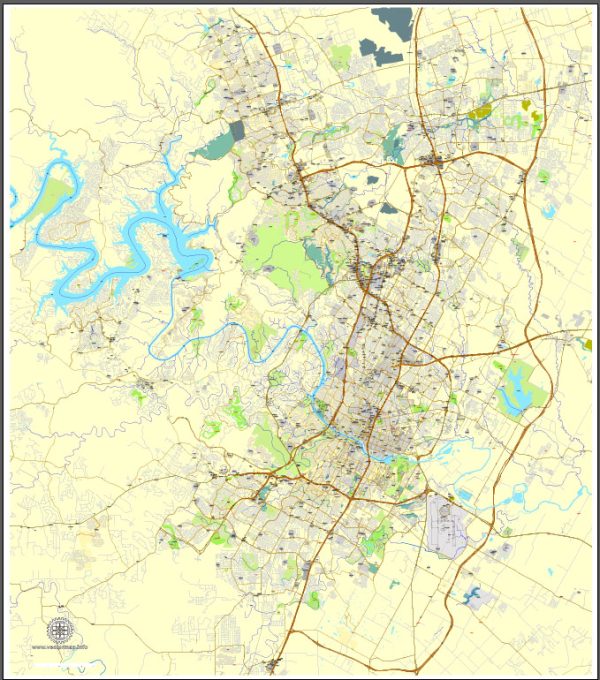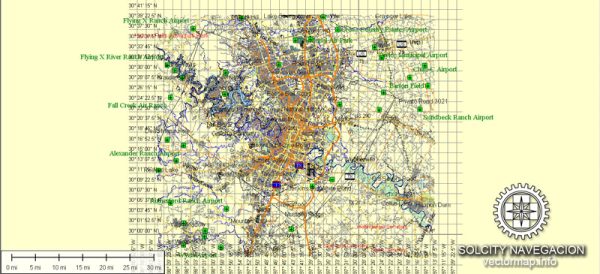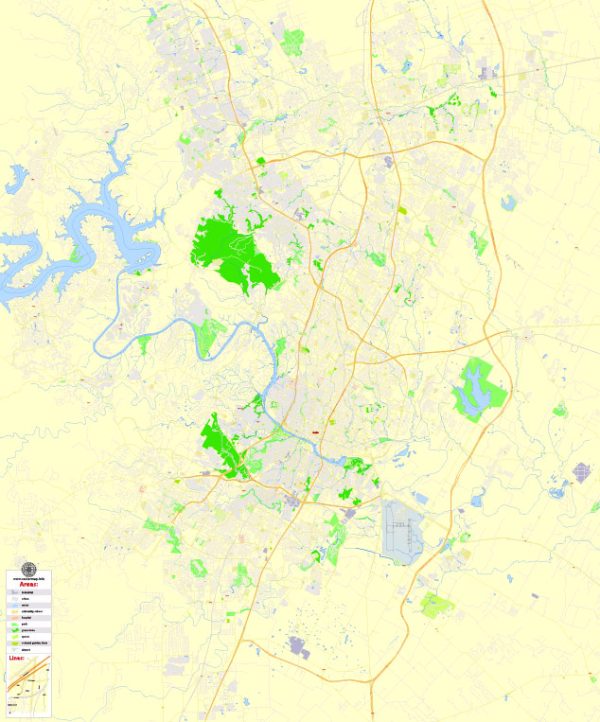A general overview of the economic and industrial landscape in Austin, Texas.
Vectormap.Net provide you with the most accurate and up-to-date vector maps in Adobe Illustrator, PDF and other formats, designed for editing and printing. Please read the vector map descriptions carefully.
Economic Overview: Austin, the capital city of Texas, has experienced significant economic growth and diversification over the past few decades. Known for its vibrant culture, technology scene, and quality of life, the city has attracted a diverse range of industries and professionals. Here are some key aspects of Austin’s economy:
- Technology and Innovation:
- Austin has earned the nickname “Silicon Hills” due to its thriving technology sector. The city is home to a significant number of tech companies, including major players like Dell, IBM, and Advanced Micro Devices (AMD).
- The presence of these technology companies, along with a supportive ecosystem for startups, has fueled innovation and entrepreneurship in the region.
- Education and Research:
- The University of Texas at Austin, a major research university, contributes significantly to the city’s intellectual capital. The university is a hub for research and development, fostering collaboration between academia and industry.
- Music and Creative Industries:
- Austin is renowned for its live music scene and cultural festivals, such as South by Southwest (SXSW). The creative industries, including music, film, and art, play a vital role in the city’s economy and cultural identity.
- Healthcare and Biotechnology:
- The healthcare and biotechnology sectors have seen growth in Austin, with companies and research institutions making significant contributions to medical innovation and biotech development.
- Real Estate and Construction:
- The city has experienced rapid population growth, leading to a boom in the real estate and construction sectors. Both residential and commercial real estate markets have been active.
- Clean Energy:
- Austin has made strides in promoting sustainability and clean energy. The city has a strong commitment to renewable energy, with initiatives aimed at reducing carbon emissions and increasing the use of clean technologies.
- Entertainment and Tourism:
- Beyond its tech and creative industries, Austin attracts visitors for its recreational activities, outdoor spaces, and cultural events. Tourism contributes to the local economy through hospitality, dining, and entertainment sectors.
- Manufacturing:
- While not as dominant as the tech sector, manufacturing also plays a role in Austin’s economy. The city has manufacturing facilities in industries such as electronics, semiconductors, and aerospace.
- Entrepreneurship and Startups:
- Austin has a dynamic startup ecosystem with numerous incubators, accelerators, and venture capital firms supporting new business ventures.
It’s important to note that economic conditions can change, and new developments may have occurred since my last update. For the latest and most accurate information, it’s recommended to consult local economic reports, government publications, and news sources.





 Author: Kirill Shrayber, Ph.D. FRGS
Author: Kirill Shrayber, Ph.D. FRGS